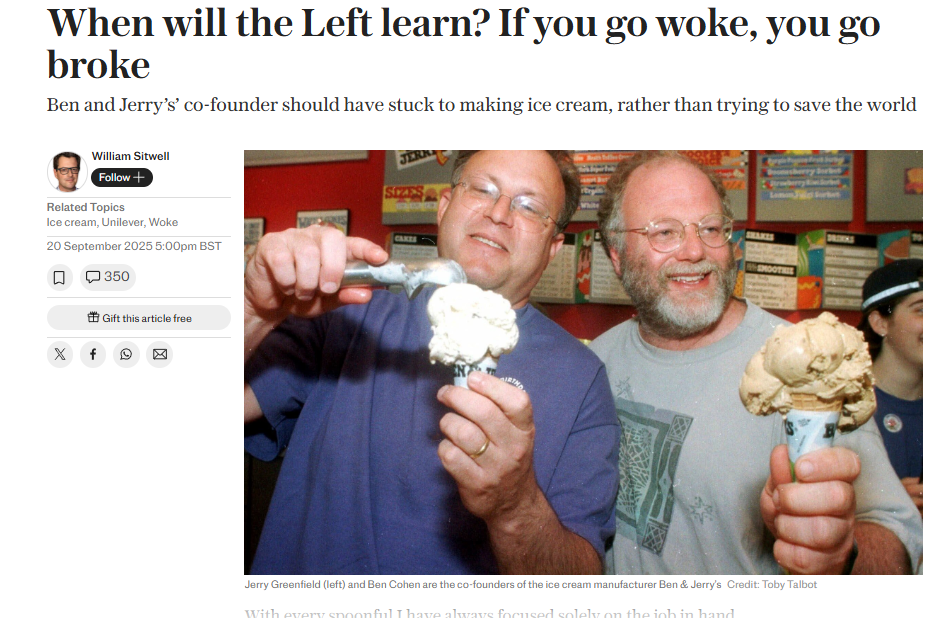If we had a pound for every time the phrase “go woke, go broke” appeared in right-wing media…
If we had a pound for every time the phrase “go woke, go broke” appeared in right-wing media…
The phrase is a favourite among critics of corporate social responsibility, used to suggest a false binary that companies must choose between embracing progressive values or turning a profit.
Just last week, the Telegraph ran the headline: “When will the Left learn? If you go woke, you go broke,” in response to the resignation of Ben & Jerry’s co-founder Jerry Greenfield. His advocacy for progressive causes, the article claimed, had become “insufferable.”
In June, Disney’s announcement of mass layoffs across its film, TV, and finance divisions prompted similar gloating. Critics framed the downsizing as a direct consequence of the company “going woke.”
But this narrative, that progressive values are inherently bad for business, is increasingly at odds with reality, especially in the world of cinema.
Largely overlooked in the media this week was a new study challenging the idea that so-called “woke” films are doomed at the box office. Conducted by film data analyst Stephen Follows and presented at the Zurich Film Festival on September 27, the study investigates how audiences actually respond to progressive content in mainstream cinema.
Far from supporting the “go woke, go broke” argument, Follows’ research suggests that certain genres, particularly horror, sports, dramas, and music-themed films, may actually benefit commercially from diverse casting and identity-driven storytelling.
“Horror audiences, who are younger on average, are more open to reinvention and less resistant to changes,” Follows noted. Citing films like Candyman, the 2018 Halloween reboot, and Evil Dead Rise, he argued that “identity-driven perspectives, diverse casting, and reimagined canon often boost appeal by adding novelty and raising stakes.”
However, the study also found that big-budget blockbusters are more vulnerable to backlash when they rely on “heavy-handed politics,” especially if audiences feel that the messaging takes precedence over story or character development.
To assess audience sentiment, Follows used a machine-learning technique called text embedding to analyse approximately four million publicly available comments. This approach converts text into numerical values, making it easier to detect patterns in how specific themes are received. He then compared these reactions to profitability estimates across more than 10,000 films.
His conclusion is that there’s no consistent pattern indicating that progressive themes harm a film’s commercial performance.
“Problems … are linked to execution,” he said. “Heavy-handed political messaging, clumsy canon changes, or anachronistic dialogue reduce audience satisfaction and profitability,” he said.
In other words, it’s not “wokeness” that turns audiences off, it’s poor storytelling.
Left Foot Forward doesn’t have the backing of big business or billionaires. We rely on the kind and generous support of ordinary people like you.
You can support hard-hitting journalism that holds the right to account, provides a forum for debate among progressives, and covers the stories the rest of the media ignore. Donate today.




